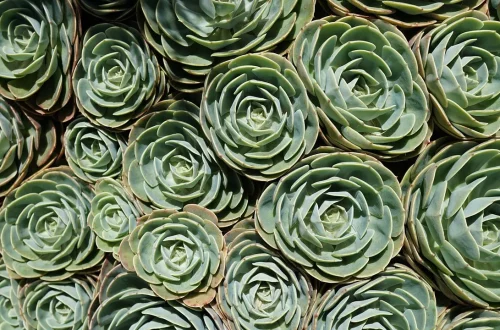
Can Rabbits Have Corn in Their Diet? What You Need to Know
Rabbits are beloved pets known for their gentle nature and playful demeanor. As herbivores, they have specific dietary needs that are essential for their health and well-being. Understanding what foods are appropriate for rabbits is crucial for any pet owner who wants to ensure their furry friends thrive. With an abundance of options available, it can be challenging to distinguish between safe and harmful foods. One such food item that often raises questions among rabbit owners is corn. While it may seem harmless, corn has specific nutritional properties that can affect a rabbit’s digestive system.
Pet owners often wonder whether they can incorporate corn into their rabbit’s diet. It’s essential to consider the nutritional requirements of rabbits, including their need for fiber, vitamins, and minerals. A balanced diet is vital for preventing health issues and promoting overall wellness. The question of whether corn can be a part of this diet warrants closer examination, considering its potential benefits and drawbacks.
In this article, we will delve into the implications of including corn in a rabbit’s diet, examining its nutritional value, potential risks, and the best practices for providing a well-rounded diet for these enchanting creatures.
Nutritional Value of Corn
Corn is a staple food in many diets around the world, often lauded for its high carbohydrate content. For rabbits, however, the nutritional composition of corn is not as straightforward. Corn is primarily composed of starch, which can be problematic for rabbits. Unlike humans and many other animals, rabbits have a unique digestive system designed for processing fibrous plant material rather than simple carbohydrates.
While corn does contain some essential nutrients, such as vitamins A, C, and several B vitamins, its high starch content can lead to digestive issues in rabbits. Starch is not easily digestible for these animals and can disrupt their gastrointestinal flora. This imbalance may result in health complications like diarrhea or obesity, particularly if corn is offered in significant quantities.
Adding to the complexity is the fact that corn lacks the necessary fiber that rabbits require for healthy digestion. Fiber is crucial for maintaining gut motility and preventing issues such as gastrointestinal stasis, a potentially life-threatening condition. Therefore, while corn may provide some vitamins and energy, its overall contribution to a rabbit’s diet is limited and could lead to more harm than good.
It’s worth noting that there are different forms of corn—sweet corn, field corn, and cornmeal, among others. Sweet corn, often the type most commonly consumed by humans, is particularly high in sugar, which can further exacerbate the risks associated with feeding it to rabbits.
In summary, while corn does offer some nutritional benefits, its high starch and sugar content, combined with a lack of fiber, makes it an unsuitable choice for a rabbit’s diet. Pet owners should prioritize fibrous vegetables and hay to ensure their rabbits receive the proper nutrition they need to thrive.
Potential Risks of Feeding Corn to Rabbits
When considering whether to include corn in a rabbit’s diet, it is important to weigh the potential risks involved. One of the most significant concerns is the impact of corn on a rabbit’s digestive health. As mentioned earlier, rabbits have a specialized digestive system that requires a constant intake of fiber to function correctly. High-starch foods like corn can disrupt this system, leading to serious health issues.
One of the most common problems associated with feeding rabbits corn is gastrointestinal stasis. This condition occurs when the normal movement of the digestive tract slows down or stops entirely. Symptoms can include a lack of appetite, reduced fecal output, and lethargy. If not addressed promptly, gastrointestinal stasis can lead to severe complications, including bloat and even death.
Another risk associated with corn is obesity. The high caloric content of corn, combined with a rabbit’s natural tendency to gain weight if not exercised adequately, can result in obesity. This condition can lead to a range of health problems, including heart disease, arthritis, and a decreased lifespan.
Moreover, corn does not provide the essential nutrients that rabbits need for overall health. While it may be tempting to offer corn as a treat, it is crucial to remember that rabbits thrive on a diet rich in hay, fresh vegetables, and a limited amount of pellets.
In conclusion, the potential risks of feeding corn to rabbits far outweigh any perceived benefits. It is always best to err on the side of caution and avoid incorporating corn into your rabbit’s diet. Instead, focus on providing a balanced, fiber-rich diet that supports their health and well-being.
Alternatives to Corn for a Balanced Rabbit Diet
Given the concerns surrounding corn as a dietary option for rabbits, it’s essential to explore healthier alternatives that can provide the necessary nutrients without the associated risks. A well-balanced rabbit diet should primarily consist of high-quality hay, fresh vegetables, and a small amount of pellets.
Hay should be the cornerstone of any rabbit’s diet. Timothy hay, orchard grass, and meadow hay are excellent choices, providing the essential fiber that rabbits need for proper digestion. This fiber not only aids in gut health but also helps wear down their continuously growing teeth, preventing dental issues.
In addition to hay, fresh vegetables can be introduced as part of a rabbit’s diet. Leafy greens such as romaine lettuce, kale, and cilantro are excellent sources of vitamins and minerals. It’s important to introduce new vegetables gradually and in moderation to avoid overwhelming a rabbit’s digestive system.
Pellets can be offered, but they should be given sparingly. Look for high-quality pellets that are high in fiber and low in protein and carbohydrates. Always check the ingredient list to ensure there are no harmful additives or excessive grains.
Fruits can also be included in a rabbit’s diet as occasional treats. Small pieces of apple, banana, or berries can provide a delightful snack, but they should be given in moderation due to their sugar content.
In summary, the best approach to feeding rabbits is to prioritize a diet rich in hay and fresh vegetables while limiting or entirely avoiding high-starch foods like corn. By providing a balanced diet tailored to their specific needs, pet owners can help ensure their rabbits live long, healthy, and happy lives.
Conclusion
In conclusion, while corn may seem like a harmless addition to a rabbit’s diet, it poses several risks that can adversely affect their health. The high starch content of corn can disrupt digestion, potentially leading to serious conditions such as gastrointestinal stasis and obesity. Instead of corn, pet owners should focus on providing a balanced diet comprised of high-quality hay, fresh vegetables, and limited pellets.
Always remember that a well-rounded diet is crucial for a rabbit’s overall health and well-being. If you are ever in doubt about what to feed your rabbit, it’s best to consult with a veterinarian who specializes in exotic pets. They can provide tailored advice that considers your rabbit’s unique needs and circumstances.
*Please note that this article is not intended as medical advice. For any health concerns regarding your pet, always consult a qualified veterinarian.*




